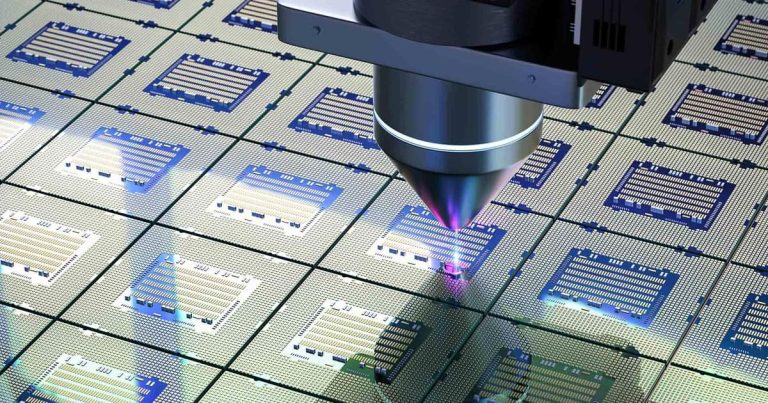The National Science Foundation (NSF) has awarded three University of Maryland researchers a $2 million grant to promote the emergence of new sustainable semiconductor technologies as well as educate a diverse workforce for the future of the bioindustry.
UMD is one of 47 institutions selected to participate in the national program stemming from the global microchip shortage that has arisen during the COVID-19 pandemic, coupled with the realization that the American supply of these devices that serve as the “brains” of computers and other high-tech devices is dependent. On long international supply lines exposed to political and natural disasters.
With funding from NSF's Future of Semiconductor (FuSe) program, researchers from the Division of Materials Science and Engineering (MSE) and the Research Institute for Electronics and Applied Physics (IREAP) are tasked with discovering new high-performance, energy-efficient and sustainable semiconductor materials for electronic and optical computational devices, using… Machine learning to predict unexplored “phase change materials” (PCMs) that researchers can incorporate, synthesize, test and later integrate into electronic and photonic computational devices.
Led by Assistant Professor Carlos A. Ríos-Ocampo (MSE and IREAP), working with Associate Professor Yifei Mu (MSE) and Professor Ichiro Takeuchi (MSE), the three-year project is a collaboration with researchers from Howard University, the Massachusetts Institute of Technology, and the University of Washington.
Phase change materials (PCMs) exploit the reversible transition between a material in different solid states—that is, crystalline and amorphous—and have great potential for creating more efficient memory devices and other computing components. The use of PCMs in semiconductors has been widely adopted by industry, but MSE's proposal addresses two key challenges: creating new, improved materials for photovoltaic devices, which use light instead of electricity; Resolving signal deviation, which affects the stability of memory components and thus computing accuracy.
Project participants will develop new materials based on combinations of five or more elements that can solve the challenges of current PCMs. The increased use of PCMs in photonics will lead to greater sustainability, the researchers said.
“If our discoveries become useful to the semiconductor industry, there will be new technology that will allow us to have more energy-efficient computers,” Rios-Ocampo said.
The college also plans to provide work experience to a select group of students from underrepresented communities in the semiconductor industry, who will become an important component of the next generation of leaders.
“Part of our proposal is also to provide experiential opportunities for students from underrepresented communities that would otherwise not be offered to them in other contexts,” Ríos-Ocampo said.
The FuSe program is part of a national initiative aligned with the $52 billion Chips and Science Act of 2022, which President Joe Biden signed into law in August 2022. Last October, Commerce Secretary Gina Raimondo visited UMD to tour its R&D spaces in the U.S. . James Clark College of Engineering before a roundtable discussion with UMD and other officials on how to improve local technological capacity and production.

